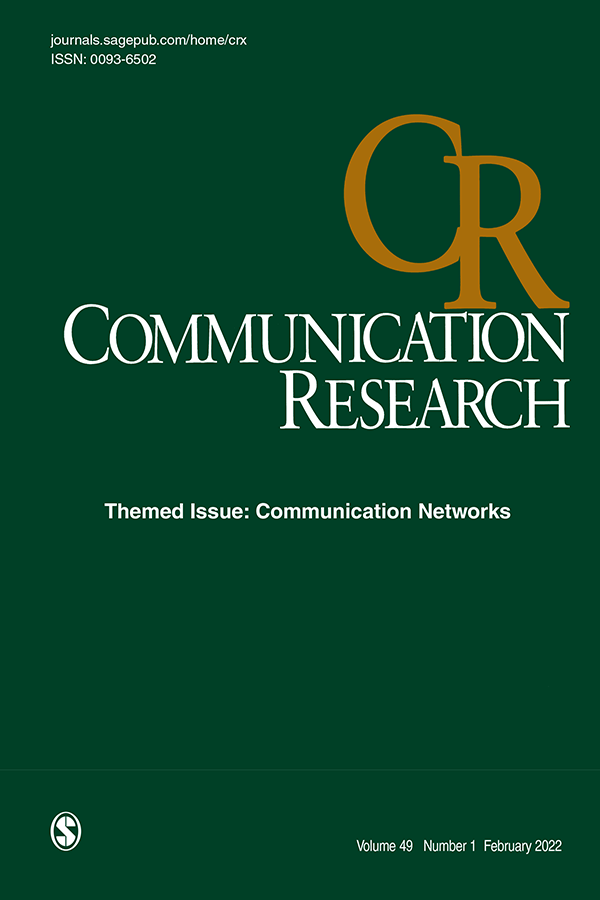超越对算法的厌恶:对计算机代理的判断是否更加多变?
IF 3.2
1区 文学
Q1 COMMUNICATION
引用次数: 0
摘要
几项研究报告了对算法的厌恶,这反映在对犯错误的计算机的判断比犯同样错误的人类更严厉。两项在线研究(N = 67, N = 252)测试了参考交流任务是否可以获得类似的效果。参与者的任务是根据据称来自人类或人工智能的书面描述来识别日本汉字。最关键的是,描述要么有缺陷(模棱两可),要么没有。同时采集实验期间的测量数据和问卷调查前后的数据。研究1揭示了算法厌恶的模式,但也指出了“算法利益”的相反影响:人工智能的模糊描述(相对于人类)得到了更负面的评价,但非模糊描述得到了更积极的评价,这表明对人工智能来源的判断可能表现出更大的可变性。研究2验证了这一预测。虽然人类和人工智能来源在并发测量方面没有差异,但问卷调查数据揭示了与变异性解释一致的几种模式。本文章由计算机程序翻译,如有差异,请以英文原文为准。
Beyond Mere Algorithm Aversion: Are Judgments About Computer Agents More Variable?
Several studies have reported algorithm aversion, reflected in harsher judgments about computers that commit errors, compared to humans who commit the same errors. Two online studies ( N = 67, N = 252) tested whether similar effects can be obtained with a referential communication task. Participants were tasked with identifying Japanese kanji characters based on written descriptions allegedly coming from a human or an AI source. Crucially, descriptions were either flawed (ambiguous) or not. Both concurrent measures during experimental trials and pre-post questionnaire data about the source were captured. Study 1 revealed patterns of algorithm aversion but also pointed at an opposite effect of “algorithm benefit”: ambiguous descriptions by an AI (vs. human) were evaluated more negatively, but non-ambiguous descriptions were evaluated more positively, suggesting the possibility that judgments about AI sources exhibit larger variability. Study 2 tested this prediction. While human and AI sources did not differ regarding concurrent measures, questionnaire data revealed several patterns that are consistent with the variability explanation.
求助全文
通过发布文献求助,成功后即可免费获取论文全文。
去求助
来源期刊

Communication Research
COMMUNICATION-
CiteScore
17.10
自引率
0.00%
发文量
20
期刊介绍:
Empirical research in communication began in the 20th century, and there are more researchers pursuing answers to communication questions today than at any other time. The editorial goal of Communication Research is to offer a special opportunity for reflection and change in the new millennium. To qualify for publication, research should, first, be explicitly tied to some form of communication; second, be theoretically driven with results that inform theory; third, use the most rigorous empirical methods; and fourth, be directly linked to the most important problems and issues facing humankind. Critieria do not privilege any particular context; indeed, we believe that the key problems facing humankind occur in close relationships, groups, organiations, and cultures.
 求助内容:
求助内容: 应助结果提醒方式:
应助结果提醒方式:


